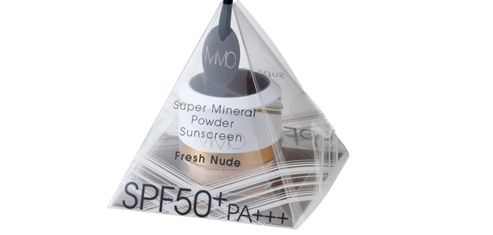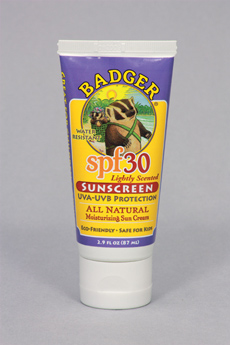by Danielle Rippingale
Sun worshipers like myself will be doing cartwheels when the sun is making a more regular appearance after an unusually cold winter and spring in Japan. While it is tempting to soak up the rays and get a healthy dose of Vitamin D, we all know the risks of lengthy sun exposure. But what many may not know is that sunscreen also has its own risks to people and the planet.
The US-based Environmental Working Group (EWG) has conduc a vast amount of clinical research on sunscreens and exposed some alarming findings. Not only do the majority of sunscreens use health compromising ingredients, but 80 percent of them do a poor job of protecting the skin from damaging UV rays. Furthermore, sunscreens are thought to be the culprits killing coral reefs around the world. Consider that every day around the world millions enjoy a dip in the ocean slathered in sunscreen. Italian research reported by National Geographic in 2008 describes how the symbiotic algae called zooxanthella that lives inside reef-building coral, providing coral with food energy through photosynthesis and contributing to its vibrant color, was being killed due to a process involving four common ingredients in sunscreen: paraben, cinnamate, benzophenone, and a camphor derivative.
Be a responsible and healthy consumer by using physical sunscreens or organic and eco-friendly chemical sunscreens that work by absorbing the sun’s rays and contain these safe active ingredients: octylcrylene, avobenzone, octinoxate, octisalate, oxybenzone, homosalate, 4-MBC, and mexoryl SX and XL. Just like other cosmetic products, the cosmetic industry continues to test sunscreens and their ingredients on animals. Have compassion in you purchase and look for the logo ensuring that the product is genuinely cruelty-free (for more information, see Tokyo Eco’s “Greening your Makeup Bag,” from the April 16, 2010 issue, online).
Before resigning to stay indoors all summer or beginning the search for a sombrero in Japan, visit EWG’s website for information on the best nontoxic and effective brands on the market (www.ewg.org/whichsunscreensarebest/2009report). Read on to learn about a few of my favorites, which are all available in Tokyo.
Mineral moisturizers from Juice beauty are made with certified organic ingredients and are available in SPF 30 sheer and light tint and SPF 20 medium tint for extra coverage (¥5,250). For the body, try the green apple SPF 20 antioxidant moisturizer, which offers active protection with a punch (¥6,300).
I am a big fan of mineral makeup MIMC, and the company has really outdone itself with its unique mineral SPF formulations. MIMC’s mineral powder sunscreen not only provides fantastic protection, but also deals with the challenge of wearing sunscreen in a hot and humid climate like Tokyo. Shiny faces be gone with MIMC’s mineral powder sunscreens that offer moderate to high protection with SPF 23+ (translucent, ¥5,040) and new 50+ (translucent or tinted, ¥6,300). The body powder sunscreen SPF50+ is applied with a powder puff, and will keep skin shine-free and protected from harmful UVA/UVB rays (¥5,250).
ECO FACT
An estimated 4,000 to 6,000 metric tons of sunscreen wash off swimmers annually in oceans worldwide, and up to ten percent of coral reefs are threatened by sunscreen-induced bleaching.
The effective, certified organic and oh-so-adorable Badger Balm has just launched a new range of sunscreens in SPF 15 and SPF 30+. Convenient to carry, the unscented SPF 30+ face stick offers water resistance and one of the most protective sunscreen ingredients, zinc oxide, for broad spectrum UVA and UVB protection. Badger boasts one of the highest EWG ratings for effective and safe sunscreens, and its SPF 30+ comes in lightly scented, unscented and dual use with antibug protection. Also available is an after-sun product called ‘Bali Balm,’ which contains shea and cocoa butters.
All of these products are conveniently available at Cosme Kitchen in Daikanyama (near the station entrance).
Test your new sunscreen while being a tourist in your own town with the Tokyo Great Cycling Tour. These six-hour guided tours take you to major Tokyo attractions and cost ¥10,000 per person including bike rental, insurance, a box lunch, a guide and tax. Visit www.tokyocycling.jp for more information.
External Link:
MIMC










